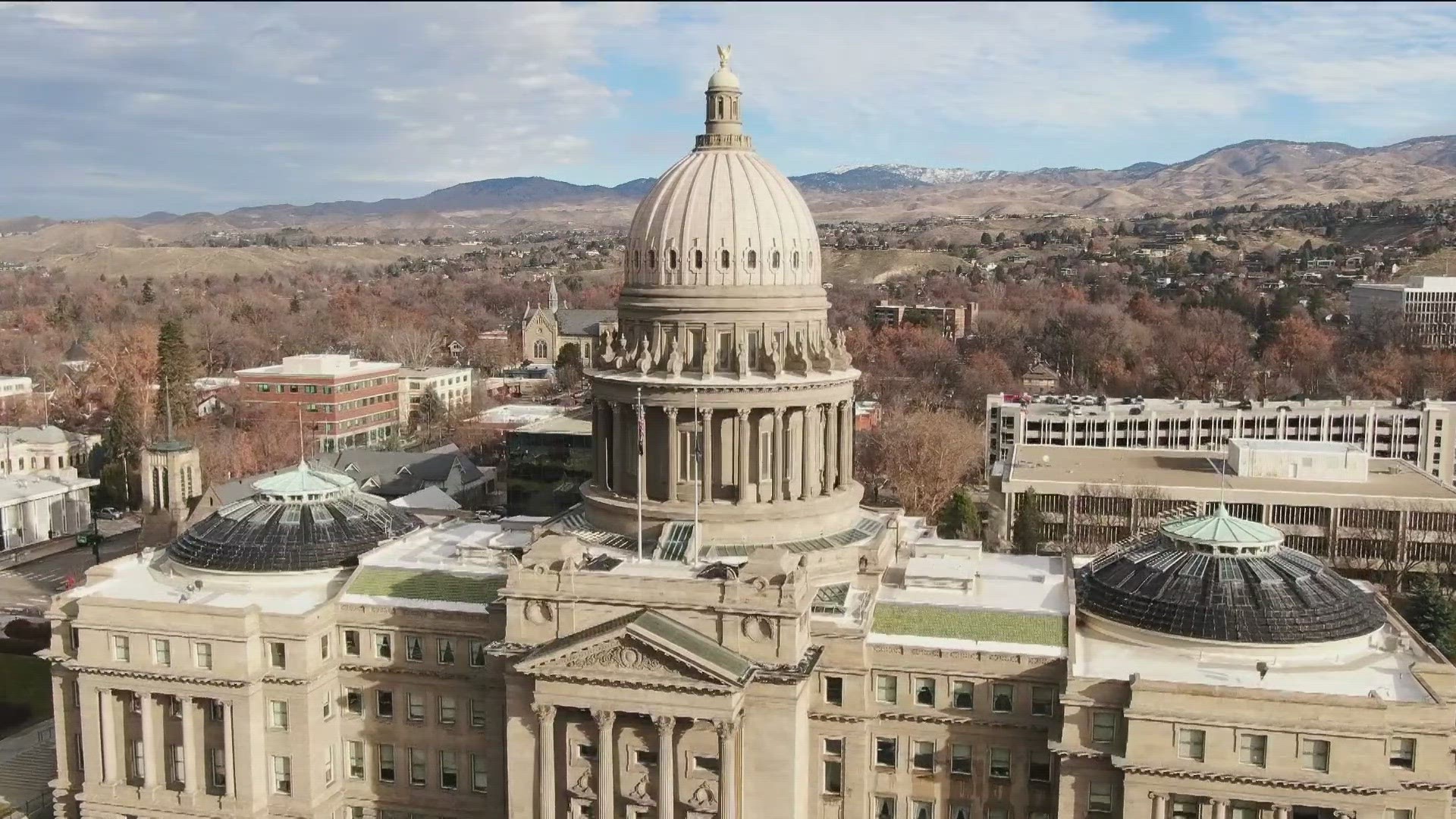BOISE, Idaho — Article first appeared in The Idaho Press.
The Idaho Legislature this year will consider a major overhaul of its human trafficking code.
A proposed bill would rewrite areas of state code that deal with human trafficking as well as amend other related crimes.
The 42-page bill is the result of a report completed by the Idaho Attorney General’s Office in December that outlined the issue in the state and provided recommendations from the office on how to address it in code.
Rep. Jaron Crane, R-Nampa, sponsored the bill but it was mostly written by the attorney general’s office, Crane said at a House Judiciary and Rules Committee meeting Monday.
“The purpose of this rewrite is to make the law easier, more cohesive, more consistent, and to structure the crime of human trafficking in such a way that law enforcement can more easily and readily connect the crime that they are investigating to human trafficking,” Crane said.
Much of the bill is consistent with the way Texas’ human trafficking laws are written, the attorney general’s office said.
One of the main alterations is to change references to “prostitution” or other forms of the word to “commercial sexual activity.” This is meant to shift the focus on the illegal activity and not on the person, who may be a victim of human trafficking.
“We want to make sure, that when we’re talking about this, this is very sensitive that we’re not labeling people in such a way that harms them more even than what they’ve already gone through,” Crane said.
The bill also makes definitions consistent between what’s currently called the prostitution section of code and the human trafficking code, as sometimes the crimes are linked. Paying for sexual activity or charging for sexual contact would still be illegal, but it adds an affirmative defense for those who are victims of human trafficking. It also adds that children under 18 could not be charged with commercial sexual activity and may be taken into shelter care by a law enforcement officer if conditions for emergency removal are met.
The language in the legislation would break out human trafficking violations into four separate crimes: human sex trafficking, human sex trafficking of a child, human labor trafficking, and human labor trafficking of a child.
The penalties for each of these would include mandatory minimum sentences, which are currently not in Idaho’s human trafficking statute. The minimum sentences included are based on minimums in Idaho’s current prostitution laws, staff from the attorney general’s office said.
For human sex trafficking of an adult, the penalty would be five to 25 years in prison, or a fine of $15,000 to $80,000, or both imprisonment and a fine.
For sex trafficking of a child, the penalty would be 10 to 30 years in prison, or a fine between $20,000 and $100,000, or both a fine and incarceration.
Under the sex trafficking laws, it would add the penalty for those who knowingly benefit from the activity. Someone who was paid to knowingly pick up someone being trafficked from an airport and drop them off to the main person engaged with the trafficking operation would be guilty of the same crime. Additionally, someone who solicits commercial sexual activity from someone they know has been trafficked can also be guilty of the same crime.
Labor trafficking, which could include situations where employers, through threats, fraud or other coercion, cause employees to work, would have a five-year minimum sentence up to 25 years, or a fine between $10,000 and $80,000.
An example of labor trafficking would be withholding immigration paperwork to force migrants to work for an employer.
Labor trafficking of a child would have a five-year minimum sentence up to 25, or a fine of $15,000 up to $80,000.
The law adds that those who own a business with employees that they know are being labor trafficked would also be guilty of the crime.
The legislature would also add property forfeiture language, similar to what’s found in the prostitution laws, so that law enforcement may seize property connected to human trafficking crimes, either through its use or if it was obtained through proceeds from the crime. A court would decide if property may be forfeited.
Under the legislation, the attorney general would only have authority to investigate and enforce these crimes if asked by local prosecutors. It would require the office to issue a report on Jan. 1 of even-numbered years that details the state’s efforts to combat the crime and recommend new steps for government entities to address it.
The office would also be required to compile and maintain training curriculum for prosecutors and law enforcement agencies on addressing the crime. The office estimates that one new full-time employee would be needed in the office if the bill passes.
Laura Guido is the Statehouse reporter at The Idaho Press and covers Idaho politics.
Watch more Local News:
See the latest news from around the Treasure Valley and the Gem State in our YouTube playlist:
HERE ARE MORE WAYS TO GET NEWS FROM KTVB:
Download the KTVB News Mobile App
Apple iOS: Click here to download
Google Play: Click here to download
Watch news reports for FREE on YouTube: KTVB YouTube channel
Stream Live for FREE on ROKU: Add the channel from the ROKU store or by searching 'KTVB'.
Stream Live for FREE on FIRE TV: Search ‘KTVB’ and click ‘Get’ to download.

